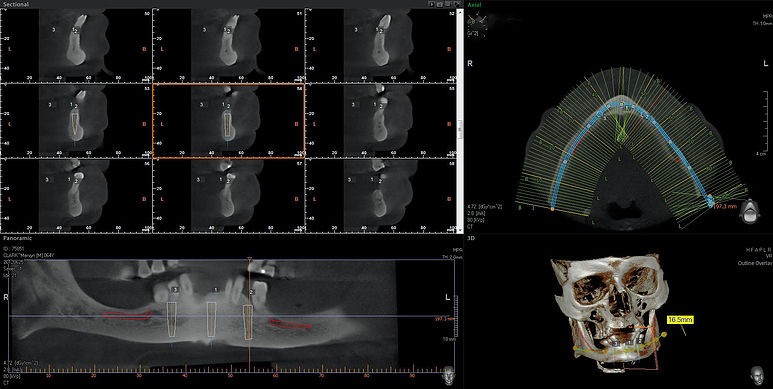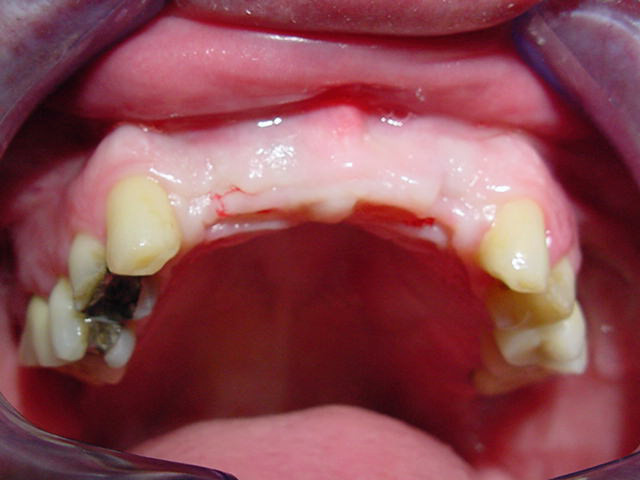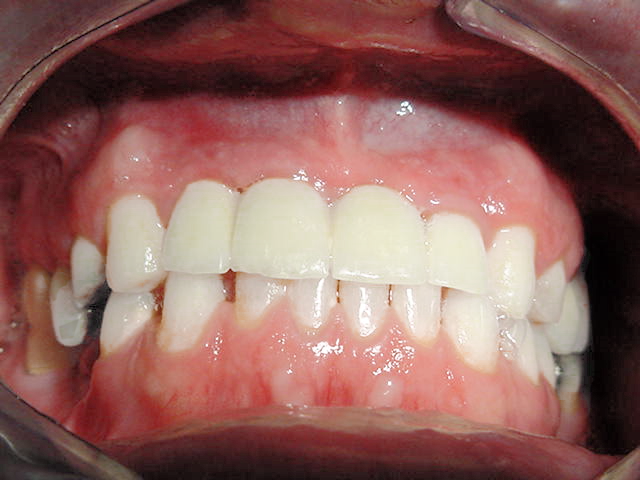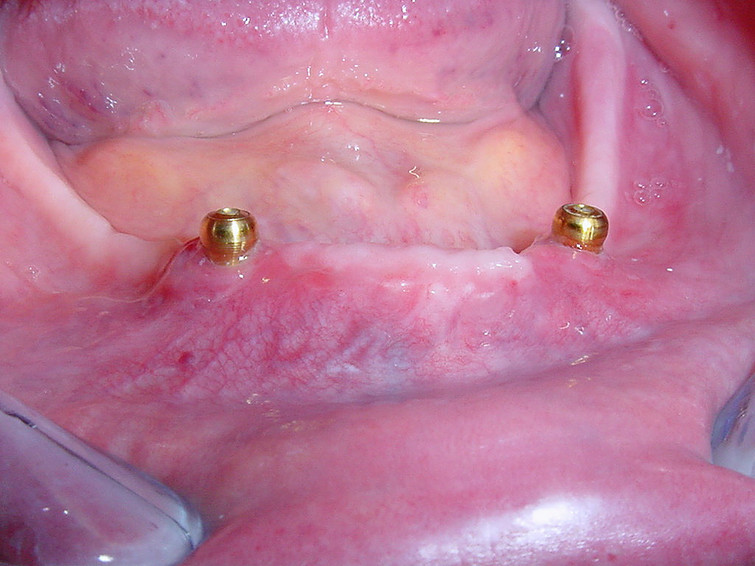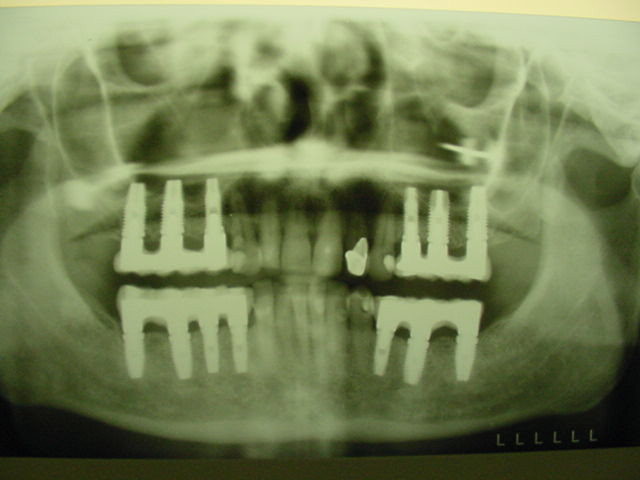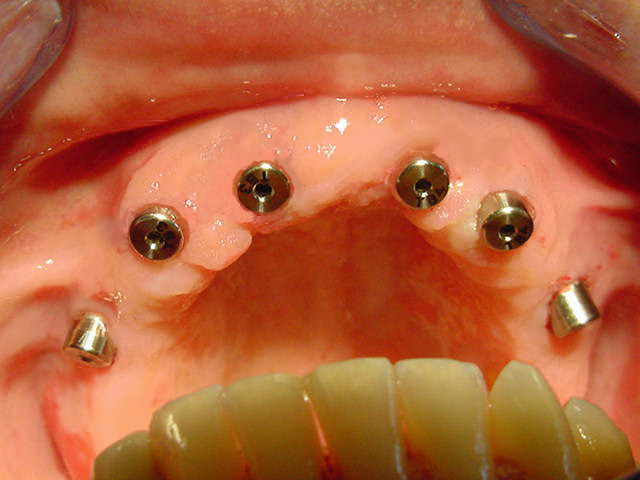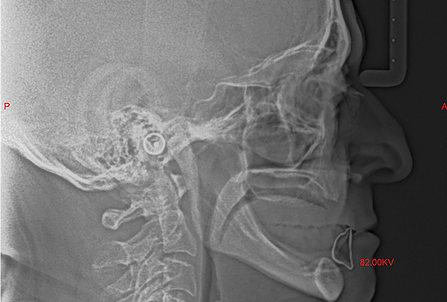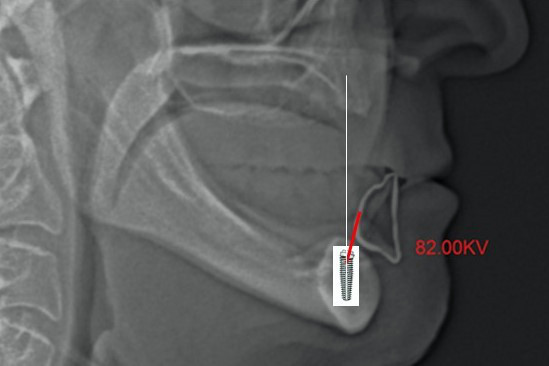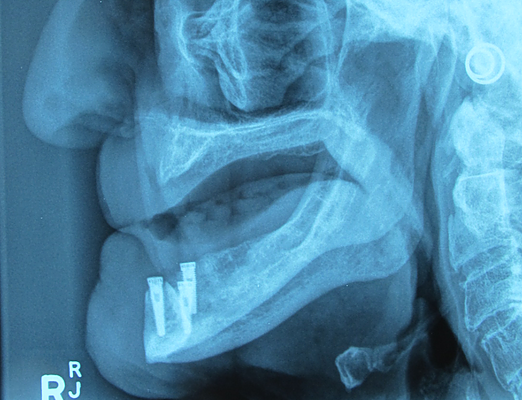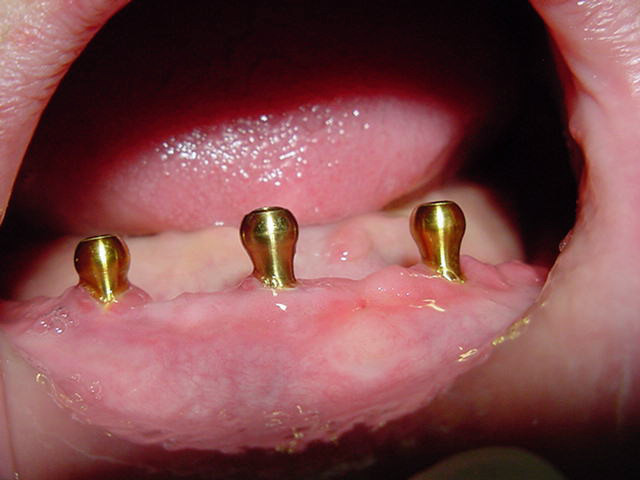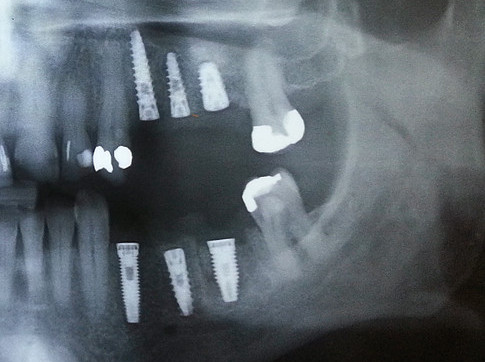What Are Dental Implants?
The implants themselves are titanium posts, which are inserted into the jawbone where teeth are missing. These anchors act as tooth root substitutes. They are surgically placed into the jawbone. The bone grows into the titanium pores over a period of few months, a process called osseointegration., creating a strong foundation for artificial teeth. Small rods are then attached to the implant, which protrude through the gums. These rods provide stable anchors for artificial replacement teeth.
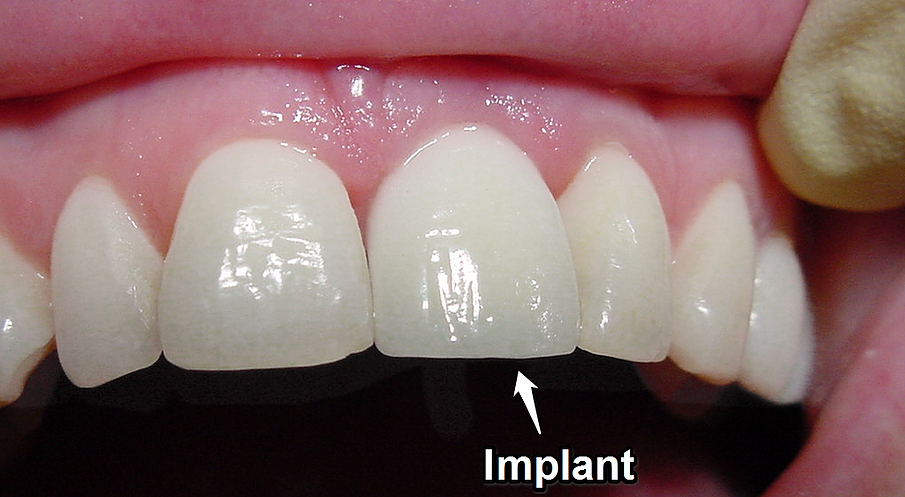
The Surgical Procedure
For most patients, the placement of dental implants involves two surgical procedures. First, implants are placed within your jawbone. For the first three to six months following surgery, the implants are beneath the surface of the gums gradually bonding with the jawbone. You should be able to wear temporary dentures and eat a soft diet during this time.
After the implant has bonded to the jawbone, the second phase begins. The implant is uncovered, the stability is tested and a small rod that protrudes through the gums is attached to the implant. 2 weeks later, you should be able to have impressions and the artificial tooth requested from the lab and inserted in another ppointment 2-4 weeks later.
What Type of Prosthesis Are Available?
A single prosthesis (crown) is used to replace one missing tooth – each prosthetic tooth attaches to its own implant. A partial prosthesis (fixed bridge) can replace two or more teeth and may require only two or three implants. A complete dental prosthesis (fixed bridge) replaces all the teeth in your upper or lower jaw. The number of implants varies depending upon which type of complete prosthesis (removable or fixed) is recommended. Generally speaking you need 6 implants for the upper jaw and 3-4 implants in the lower jaw.
Why Select Dental Implants Over Bridges or Dentures?
There are several reasons: Why sacrifice the structure of surrounding good teeth to have a bridge. In addition, a removable denture whether partial or full is no where near as stable and comfortable as implant supported restorations.
Are You A Candidate For Implants?
If you are considering implants, your mouth must be examined thoroughly and your medical and dental history reviewed. Most patients are candidates for implants. Contraindications include heavy smoking or other local considerations. If your mouth is not ideal for implants, ways of improving outcome, such as bone grafting, or other special types of impants may be recommended.
What Type of Anesthesia is Used?
The majority of dental implants and bone grafting are performed in hospital under general anaesthesia, however a single or few implants may be placed in the oral surgeons’ office under local anaesthetic.
Do Implants Need Special Care?
Once the implants are in place, they will serve you well for many years if you take care of them and keep your mouth healthy. This means taking the time for good oral hygiene (brushing and flossing) and keeping regular appointments with your dental specialists.
Implant Planning
